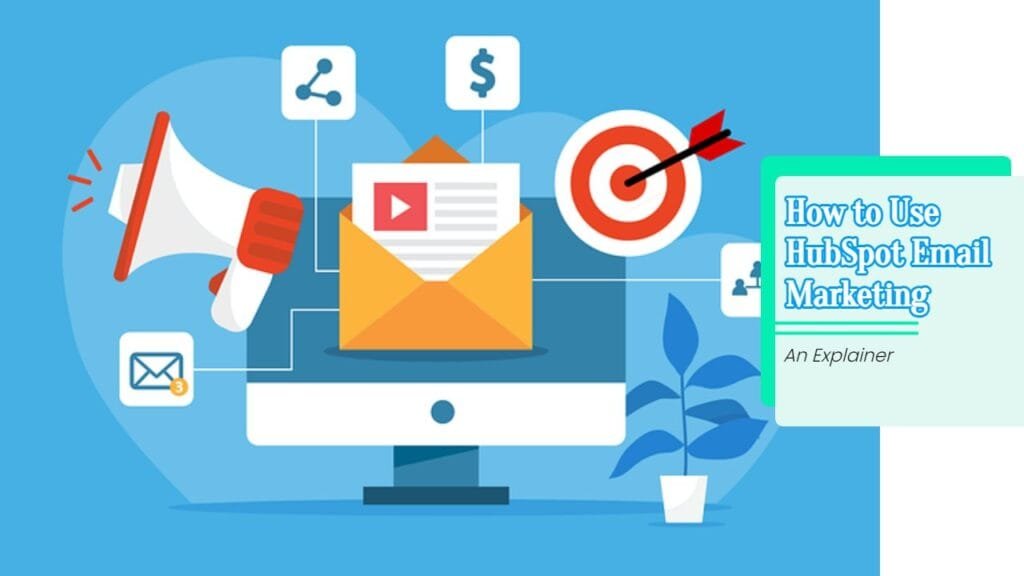Understanding Social Media Marketing
Importance of Social Media Marketing
In today’s digital era, social media marketing has become essential for manufacturers aiming to expand their client base and enhance brand visibility. Social media platforms provide a robust channel for promoting brand awareness, engaging with customers, and driving sales (Venveo). By leveraging these platforms, manufacturers can position themselves as industry leaders and develop stronger customer relationships.
The significance of social media marketing for manufacturers includes:
- Enhanced Brand Awareness: Social media allows manufacturers to showcase their products and services to a broad audience, increasing brand visibility.
- Improved Customer Engagement: Interacting directly with customers through comments, messages, and posts helps build trust and loyalty.
- Lead Generation: Effective social media strategies can convert casual followers into loyal customers.
- Thought Leadership: By sharing valuable and informative content, manufacturers can establish themselves as authorities in their industry.
Impact of Social Media Metrics
Social media metrics provide crucial insights into the effectiveness of marketing campaigns and help manufacturers refine their strategies for better results. Key metrics include reach, impressions, engagement rate, follower growth rate, and brand mentions. Understanding these metrics allows manufacturers to measure their social media performance and make data-driven decisions.
| Metric | Description | Importance |
|---|---|---|
| Reach | The number of unique users who see your content | Measures content exposure |
| Impressions | The total number of times your content is displayed | Indicates content frequency |
| Engagement Rate | The ratio of interactions (likes, comments, shares) to total followers | Gauges audience interaction |
| Follower Growth Rate | The percentage increase in social media followers over time | Tracks audience growth |
| Brand Mentions | The number of times your brand is mentioned by users | Reflects brand visibility |
These metrics provide valuable data to assess the success of social media campaigns and identify areas for improvement. For manufacturers, monitoring these metrics is crucial for optimizing their social media presence and maximizing the return on investment (ROI) (Marketing Evolution).
In a global marketing landscape, incorporating digital marketing for manufacturers alongside social media initiatives is vital. This approach ensures a cohesive strategy that leverages various digital channels to reach and engage the target audience effectively.
For more strategies and tips on marketing for manufacturers, explore our articles on manufacturing marketing strategies, b2b manufacturing marketing tactics, and industrial marketing for manufacturers.
Legal and Ethical Considerations
When engaging in social media marketing for manufacturers, it is essential to adhere to legal and ethical guidelines. This ensures compliance with regulations and fosters trust with customers.
Regulations in Social Media Marketing
Manufacturers must navigate various regulations when marketing on social media. The Federal Trade Commission (FTC) in the United States, for instance, oversees false or misleading advertisements. Regulations from other countries or specific states, like the General Data Protection Regulation (GDPR) in the European Union, also impact multinational companies.
Industries such as finance, children’s products, food and beverages, and tobacco face stricter marketing requirements (Library of Congress). Laws like the GDPR aim to protect consumers’ data, ensuring companies worldwide comply if they handle the personal data of EU citizens (Play Media).
| Regulation | Region/Country | Governed Aspect | Key Points |
|---|---|---|---|
| FTC | USA | False/Misleading Ads | Truth-in-advertising principles |
| GDPR | EU | Data Protection | Consumer data privacy and security |
| COPPA | USA | Children’s Online Privacy | Protection of children’s personal information |
| CAN-SPAM | USA | Commercial Emails | Specifies email marketing practices |
Ethical Practices in Digital Marketing
Ethical practices are not just about legal compliance; they reflect a company’s integrity. Many associations have a code of ethics, and some companies have adopted their own standards beyond legal requirements (Library of Congress).
Data protection is at the core of ethical marketing. Laws aim to preserve privacy, enforce data security measures, and promote transparency (Play Media).
Key ethical practices include:
- Transparency: Clearly disclose how consumer data is used and ensure honest representation.
- Consent: Obtain explicit permission before collecting consumer data.
- Security: Implement robust security measures to protect sensitive data.
- Accuracy: Ensure all marketing communications are truthful and accurate.
For manufacturers, maintaining ethical standards is crucial in building consumer trust and securing long-term relationships.
Manufacturers aiming to enhance their social media presence should also explore various manufacturing marketing strategies and leverage platforms like SEO for manufacturing industry and PPC for manufacturing businesses. Maintaining ethical practices not only ensures compliance but also elevates the company’s brand image and reputation.
Strategies for Manufacturing Marketing
Crafting an effective marketing strategy is crucial for manufacturers aiming to expand their client base in B2B markets. This section outlines key strategies manufacturers can employ to enhance their digital presence and engage their target audience.
Digital Marketing Options
Digital marketing provides numerous avenues for manufacturers to increase visibility and drive sales. Here are some viable strategies:
- Content Marketing: Producing relevant articles, videos, and infographics that address the needs and interests of the target audience can help establish authority and trust in the industry.
- Search Engine Optimization (SEO): Optimizing web content for search engines increases organic traffic and improves search rankings. Visit our article on SEO for manufacturing industry for more insights.
- Pay-Per-Click (PPC): Running targeted ads on platforms like Google and LinkedIn can drive immediate traffic and generate leads.
- Social Media Marketing: Platforms like LinkedIn and Facebook can be leveraged to post updates, engage with followers, and share content. Learn more about digital marketing for manufacturers.
- Email Marketing: Sending regular newsletters, promotional offers, and updates can keep potential and existing customers engaged.
These strategies are recommended by 310 Creative and Roketto.
Role of SEO in Marketing
SEO is a cornerstone of digital marketing for manufacturers. It involves optimizing content to make it more discoverable on search engines like Google. Effective SEO improves the website’s visibility, driving organic traffic and building authority.
Key components of SEO for manufacturing:
- Keyword Research: Identifying keywords relevant to the manufacturing industry and incorporating them into web content, blog posts, and meta descriptions.
- On-Page SEO: Ensuring each page of the website is optimized with proper headings, alt text, and internal linking for better search engine ranking.
- Link Building: Acquiring backlinks from reputable industry sites to boost domain authority.
- Technical SEO: Enhancing website speed, mobile compatibility, and security to improve overall user experience.
For an in-depth look at SEO strategies, refer to our guide on b2b manufacturing marketing tactics.
Leveraging Email Campaigns
Email marketing is a powerful tool for maintaining engagement with potential and existing customers. It allows manufacturers to deliver targeted content straight to the inboxes of their audience, fostering relationships and driving conversions.
Essential elements of successful email campaigns:
- Segmentation: Dividing the email list into segments based on factors such as industry, company size, and past interactions. This allows for more personalized messaging.
- Automation: Using marketing automation tools to send timely, relevant emails. Explore more on manufacturing marketing automation.
- Content Variety: Mixing promotional offers, industry news, and educational content to keep the audience engaged.
- Performance Tracking: Monitoring open rates, click-through rates, and conversions to assess the effectiveness of each campaign and make data-driven improvements.
Email marketing enhances customer loyalty by providing valuable resources and staying top of mind. For more strategies, visit our page on manufacturing lead generation strategies.
By implementing these digital marketing strategies, manufacturers can improve brand awareness, generate leads, and ultimately increase sales. Each approach, from SEO to email campaigns, plays a critical role in fostering a strong online presence in a competitive market.
Social Media Marketing for Manufacturers
With the evolving digital landscape, manufacturers must adapt to new marketing strategies to remain competitive. Social media plays a crucial role in reaching and engaging with potential customers.
Targeting the Ideal Customer
Understanding and targeting the ideal customer is the foundation of social media marketing for manufacturers. Conduct thorough market research to gather demographic data about your audience. This includes identifying their interests, the social media platforms they frequent, and their engagement patterns (Venveo).
By knowing your audience, you can tailor content that resonates with them, thereby increasing the likelihood of engagement and lead generation. Manufacturers should focus on creating educational and value-driven content that positions their brand as an industry leader.
| Demographic Factor | Data Insights | Engagement Strategies |
|---|---|---|
| Age Range | 30-50 years | Professional, informative posts |
| Industry | Manufacturing, Engineering | Case studies, whitepapers |
| Preferred Platforms | LinkedIn, Facebook | B2B-focused content |
Multi-Channel Approach
A multi-channel approach ensures broader reach and more touchpoints with potential customers. Utilizing various social media platforms allows manufacturers to engage different segments of their audience.
- LinkedIn: Ideal for B2B marketing, sharing industry news, and establishing thought leadership.
- Facebook: Useful for targeted ads and community engagement.
- Instagram: Leverage visual content to showcase products and behind-the-scenes operations.
Each channel requires unique content tailored to its audience. For more information on strategies for specific platforms, read our articles on Facebook marketing strategies, Instagram’s visual appeal, and Leveraging LinkedIn for B2B.
Importance of Video Content
Video content has become an essential component of social media marketing. Videos can effectively convey complex information in an engaging and digestible manner. They are particularly useful for product demonstrations, facility tours, and customer testimonials.
Benefits of Video Content:
- Increased Engagement: Videos are more likely to be shared and commented on than text or image posts.
- Enhanced Understanding: Demonstrates product usage and benefits clearly.
- Improved Brand Trust: Showcases transparency and authenticity through testimonials and behind-the-scenes content.
Consider hosting webinars, creating how-to guides, and sharing success stories through video formats. Prioritize high-quality production to maintain professionalism and credibility. Explore our importance of video content article for more insights.
By targeting the right audience, adopting a multi-channel approach, and incorporating video content, manufacturers can effectively leverage social media marketing to enhance brand presence, generate leads, and foster customer loyalty in the B2B market.
Effective Social Media Presence
Achieving an effective social media presence requires careful planning and execution. For manufacturing companies, maintaining a strong online presence can significantly expand their client base in B2B markets. This section covers three key components: establishing a consistent posting schedule, creating native content, and measuring key metrics.
Consistent Posting Schedule
A consistent posting schedule is crucial for engaging your audience effectively. According to The Process Hacker, small companies should aim to publish content at least once a day on Facebook and Instagram, three times daily on Twitter, and once or twice a week on LinkedIn.
| Platform | Suggested Frequency |
|---|---|
| Daily | |
| Daily | |
| Three times daily | |
| 1-2 times a week |
Adhering to a regular schedule helps establish brand reliability and keeps your audience engaged. For more detailed strategies, explore our guide on manufacturing marketing strategies.
Native Content Creation
Creating native content specific to each platform enhances engagement and authenticity. Native content refers to content that is designed to fit the style and functionality of a particular social media platform.
- Facebook: Post detailed updates and engage with comments.
- Instagram: Share high-quality images and stories.
- Twitter: Utilize short, impactful tweets with relevant hashtags.
- LinkedIn: Publish in-depth articles and professional updates.
By tailoring your content to each platform, you can better connect with your target audience. Visit our article on manufacturing content marketing for additional tips.
Measuring Key Metrics
Measuring key metrics is essential to assess the effectiveness of your social media marketing efforts. While vanity metrics like likes and comments are common, more valuable metrics include engagement rate and sentiment analysis (Venveo).
| Metric | Description |
|---|---|
| Engagement Rate | Measures the level of interaction (likes, shares, comments) relative to the total number of followers. |
| Sentiment Analysis | Evaluates the tone and emotion behind social media mentions. |
Consistently tracking these metrics allows you to adapt your strategies and improve your social media presence. For more information on optimizing your social media efforts, check out industrial marketing for manufacturers.
By focusing on these three components—consistent posting schedules, native content creation, and key metric measurement—manufacturing companies can effectively enhance their social media marketing strategies and reach a wider B2B audience.
Social Media Platform Selection
Choosing the right social media platforms can significantly enhance the effectiveness of social media marketing for manufacturers. This section will explore the most impactful platforms: Facebook, Instagram, and LinkedIn.
Facebook Marketing Strategies
Facebook, with nearly 3 billion monthly active users, is an essential platform for manufacturing businesses (Netwave Interactive). It offers diverse advertising options, advanced pixel capabilities, and a Messenger app for customer service, making it a robust tool for connecting with potential clients.
Key Strategies:
- Targeted Advertising: Use Facebook Ads to reach specific demographics, locations, and interests.
- Advanced Pixel Tracking: Implement Facebook Pixel to track conversions, optimize ads, and retarget users who have interacted with your site.
- Customer Engagement: Utilize Messenger for real-time customer service and interactions.
Table: Example Advertising Options
| Ad Type | Purpose | Ideal Use Case |
|---|---|---|
| Image Ads | Visual appeal | Showcasing products or success stories |
| Video Ads | Dynamic engagement | Demos, virtual tours of the manufacturing process |
| Carousel Ads | Multiple products | Highlighting different services or product lines |
For more insights, refer to our article on manufacturing content marketing.
Utilizing Instagram’s Visual Appeal
Instagram is ideal for manufacturers looking to showcase the visual and creative aspects of their work. With a focus on visual content and short-form videos, it allows for engaging and highly shareable posts (Netwave Interactive).
Key Strategies:
- Visual Content: Post images and videos of products, behind-the-scenes footage, and customer testimonials.
- Instagram Shopping: Utilize Instagram Shopping to enable direct purchases from your posts and streamline the path from discovery to purchase.
- Influencer Collaborations: Partner with industry influencers to extend your reach and increase credibility.
Table: Content Examples
| Content Type | Description | Example Use |
|---|---|---|
| Photos | High-quality images of products or processes | New machinery in action, finished products |
| Stories | Temporary posts for promotions or real-time content | Daily operations, special offers |
| IGTV | Longer videos | Detailed product demonstrations, tutorials |
Exploring more visual tactics, see our manufacturing marketing strategies.
Leveraging LinkedIn for B2B
LinkedIn is the go-to platform for B2B companies due to its focus on professional networking. It offers highly targeted advertising, beneficial for lead generation and recruitment efforts, making it vital for manufacturing businesses aiming to expand their professional client base (Netwave Interactive).
Key Strategies:
- Professional Networking: Connect with industry professionals, potential clients, and partners.
- Targeted Advertising: Utilize LinkedIn’s advanced targeting options to reach key decision-makers in relevant industries.
- Thought Leadership: Post articles and updates to establish your brand as an industry leader.
Table: LinkedIn Features
| Feature | Purpose | Ideal Use Case |
|---|---|---|
| Sponsored Content | Promote posts to a targeted audience | Industry news, case studies |
| InMail | Send direct messages to specific users | Personalized outreach to leads |
| Showcase Pages | Highlight individual products or services | Separate pages for different business units |
Dive deeper into B2B tactics with b2b manufacturing marketing tactics.
Each platform offers unique advantages for manufacturing marketing. Tailoring your approach to leverage the strengths of Facebook, Instagram, and LinkedIn can help you effectively reach your target audience and achieve your marketing goals.
Data Protection and Security
In the realm of digital marketing, data protection and security are paramount, especially for manufacturers aiming to expand their client base through social media marketing for manufacturers. Key aspects such as GDPR compliance, secure data handling, and transparency in marketing ensure legal adherence and foster customer trust.
GDPR Compliance
The General Data Protection Regulation (GDPR), established by the European Union in 2018, has far-reaching implications for companies worldwide. Any organization handling the personal data of EU citizens must comply with GDPR requirements, which emphasize legal adherence and customer trust (Play Media).
GDPR mandates include:
- Obtaining clear and explicit consent from individuals before collecting their data.
- Ensuring data is securely stored and processed.
- Providing individuals with rights to access, correct, and delete their data.
Failure to comply with GDPR can result in significant fines and reputational damage. Manufacturers leveraging digital marketing must ensure they are up-to-date with these regulations. For detailed insights into SEO and its role under GDPR, refer to our section on SEO for the manufacturing industry.
| GDPR Requirement | Description |
|---|---|
| Consent | Clear and explicit consent required before data collection |
| Data Storage | Secure storage and processing of personal data |
| Individual Rights | Rights to access, correct, and delete personal data |
| Penalties for Non-Compliance | Significant fines and reputational damage for violations |
Importance of Secure Data Handling
Secure data handling is vital in digital marketing to maintain customer trust and comply with regulations like GDPR and California Consumer Privacy Act (CCPA). Implementing robust security measures and best practices is essential (Play Media).
Key practices for secure data handling:
- Encryption of personal data during transmission and storage.
- Regular security audits and vulnerability assessments.
- Employee training on data privacy and security policies.
Secure data handling reduces the risk of data breaches and ensures compliance with legal requirements. To explore more about digital marketing techniques, visit our page on digital marketing for manufacturers.
| Security Measure | Purpose |
|---|---|
| Data Encryption | Protects personal data during transmission and storage |
| Security Audits | Identifies and mitigates potential vulnerabilities |
| Employee Training | Ensures staff understands and adheres to data privacy and security policies |
Transparency in Marketing
Transparency in marketing is indispensable as consumers are increasingly aware of ethical considerations. Companies must adhere to ethical advertising standards to maintain consumer trust and protect their reputation (Play Media).
Essential aspects of transparency in marketing:
- Clearly disclosing data collection and usage practices.
- Being honest and upfront about product benefits and limitations.
- Avoiding misleading or false advertising.
By adhering to transparent marketing practices, manufacturers can build strong, trust-based relationships with their customers. For ethical advertising insights, refer to our section on ethical advertising practices.
| Transparency Aspect | Description |
|---|---|
| Data Collection | Clearly disclose practices related to data collection and usage |
| Product Information | Provide honest and accurate information about product benefits and limitations |
| Advertising Standards | Avoid misleading or false advertising to maintain trust and reputation |
Understanding and implementing robust data protection and security practices are essential for effective social media marketing. By ensuring GDPR compliance, secure data handling, and transparency in marketing, manufacturers can successfully expand their client base while maintaining legal and ethical standards. For more strategies specific to the industry, check out our section on manufacturing marketing strategies.
Ethical Advertising Practices
Consumer Trust and Authenticity
In the realm of social media marketing for manufacturers, consumer trust and authenticity play a crucial role. Ethical advertising focuses on honesty, transparency, and respect for consumers. Manufacturers aiming to expand their B2B client base must emphasize authenticity in their marketing efforts to build lasting relationships with their audience.
Transparent marketing ensures that businesses communicate their values and practices clearly to consumers, which fosters trust and accountability. According to Play Media, consumers are increasingly aware of ethical considerations and expect companies to adhere to ethical advertising standards. By prioritizing authenticity and responsible business practices, manufacturers can resonate more with consumers who value these principles.
Impact of Unethical Practices
The impact of unethical practices in social media marketing can be profound, leading to a loss of consumer trust and damaging the reputation of the manufacturing industry. Unethical practices include misleading advertisements, false claims, and a lack of transparency. These practices not only alienate potential clients but also tarnish the trust with established customers.
| Consequence | Impact on Business |
|---|---|
| Loss of Consumer Trust | Decreased customer loyalty and lifetime value |
| Negative Reputation | Decreased brand credibility and market share |
| Legal Repercussions | Fines and sanctions from regulatory bodies |
Unethical practices can result in significant financial and reputational damages. As noted by Play Media, consumers prioritize businesses that practice ethical advertising, and companies failing to do so risk long-term consequences.
Adherence to Advertising Standards
To cultivate trust and avoid the pitfalls of unethical practices, manufacturers must adhere to industry advertising standards. Many marketing associations, such as the American Marketing Association, have established codes of ethics that guide practitioners in maintaining ethical standards. Additionally, some companies adopt their own standards of practice that go beyond what the law requires (Library of Congress).
Components of Ethical Advertising:
- Honesty in advertising claims
- Transparency in business practices
- Respect for consumer privacy and data protection
- Adherence to legal standards such as GDPR
Compliance with regulations like the General Data Protection Regulation (GDPR) is essential for fostering customer trust and ensuring legal adherence. The GDPR emphasizes transparency and accountability in handling personal data, reflecting the importance of ethical practices in digital marketing (Play Media).
By following ethical advertising practices, manufacturers can build consumer trust and strengthen their market position. Implementing these principles not only aligns with legal requirements but also resonates with consumers, enhancing the overall effectiveness of their social media marketing strategies. For more insights on maintaining a robust marketing presence, explore our resources on manufacturing marketing strategies and manufacturing content marketing.





















